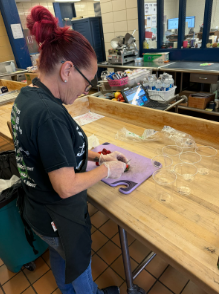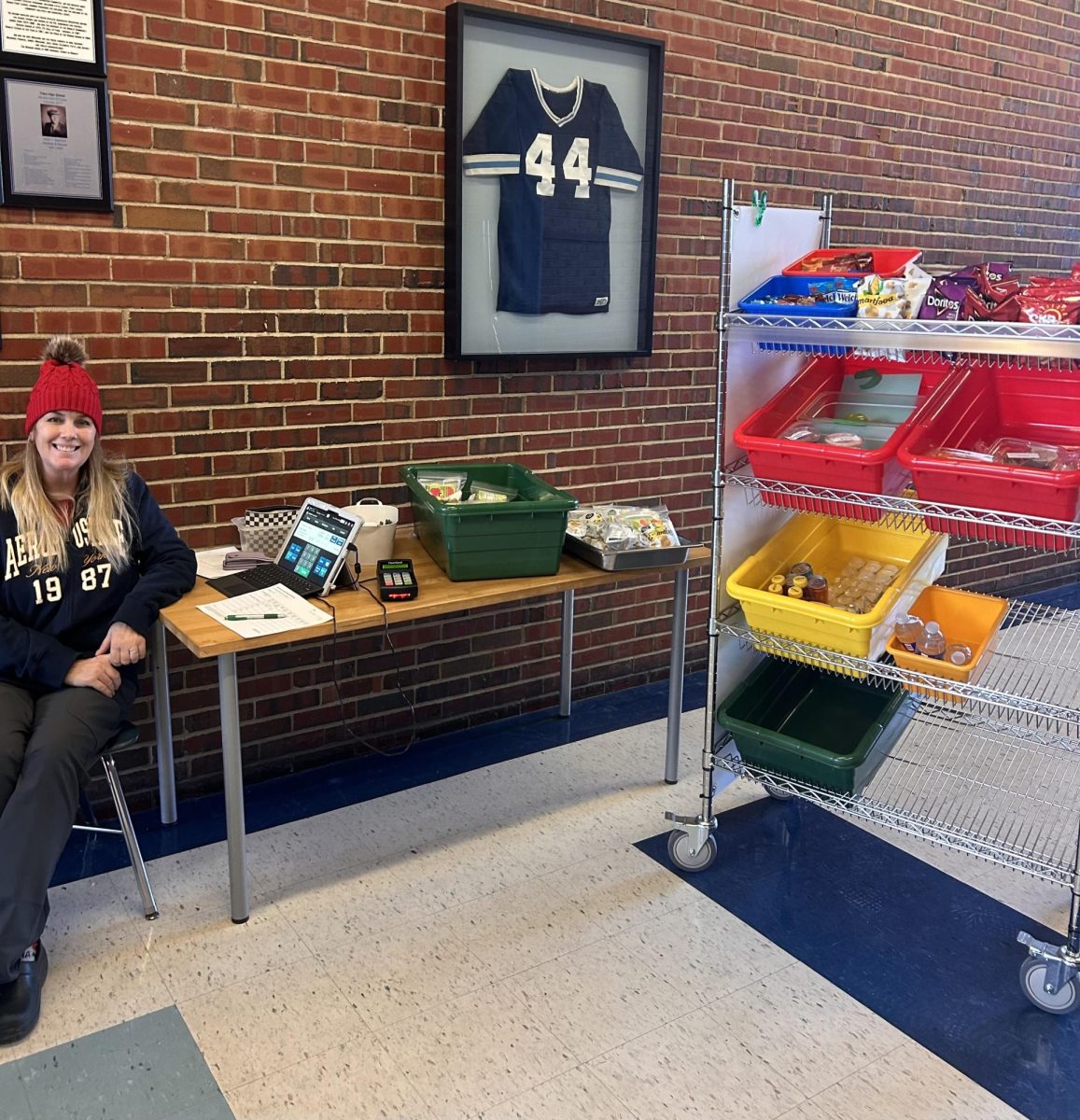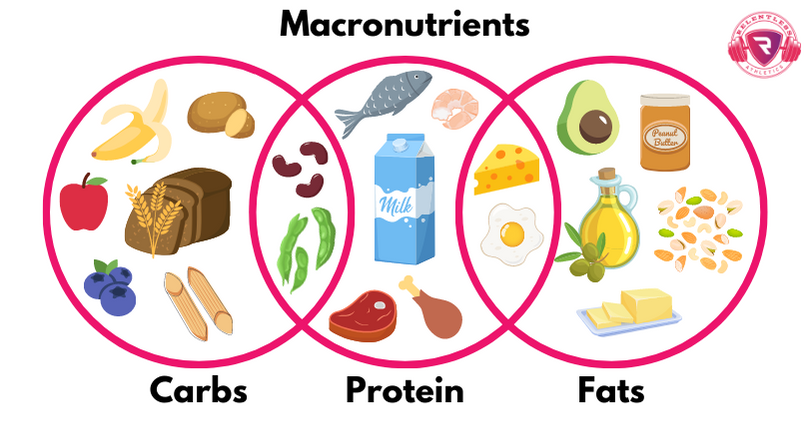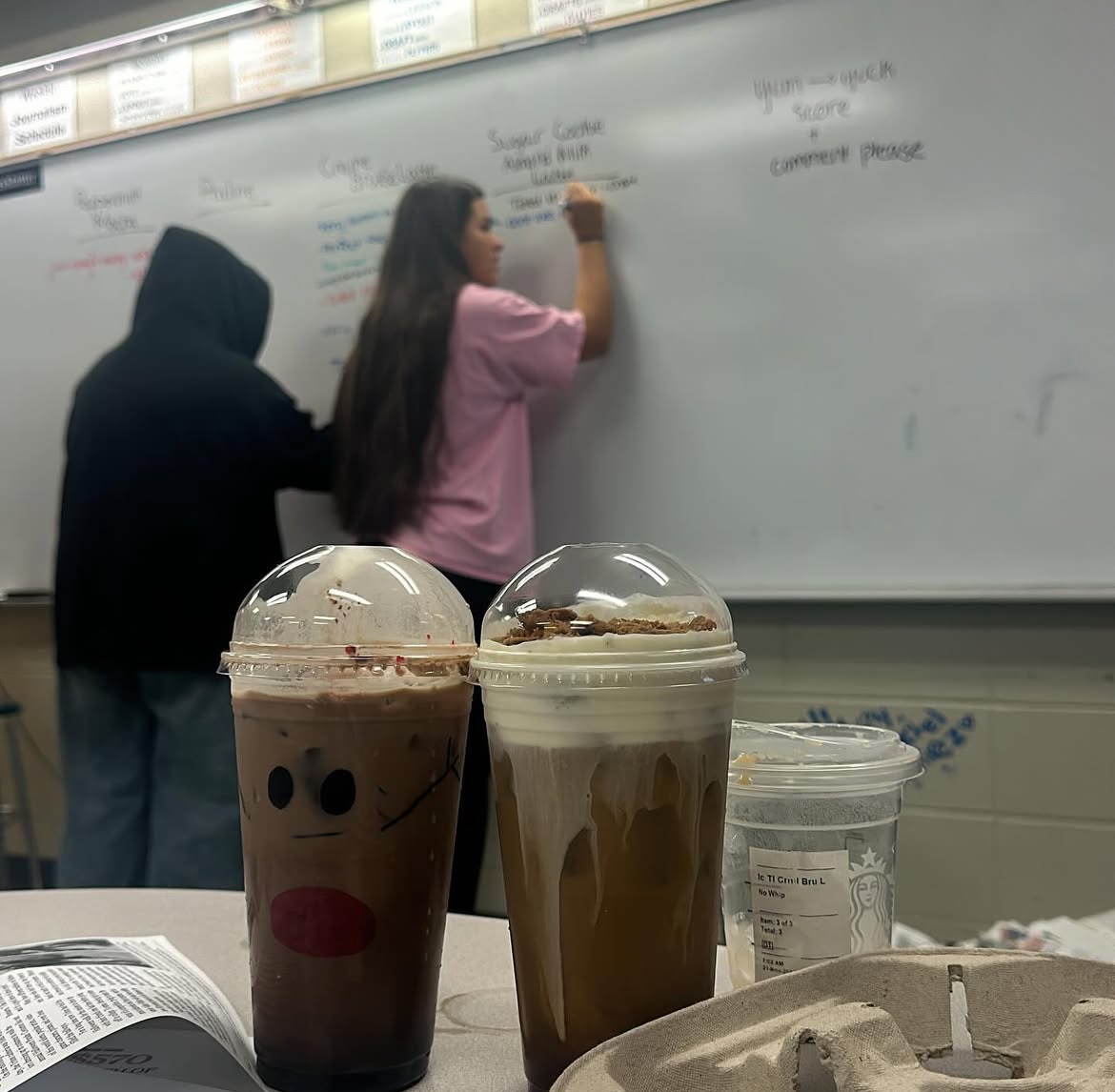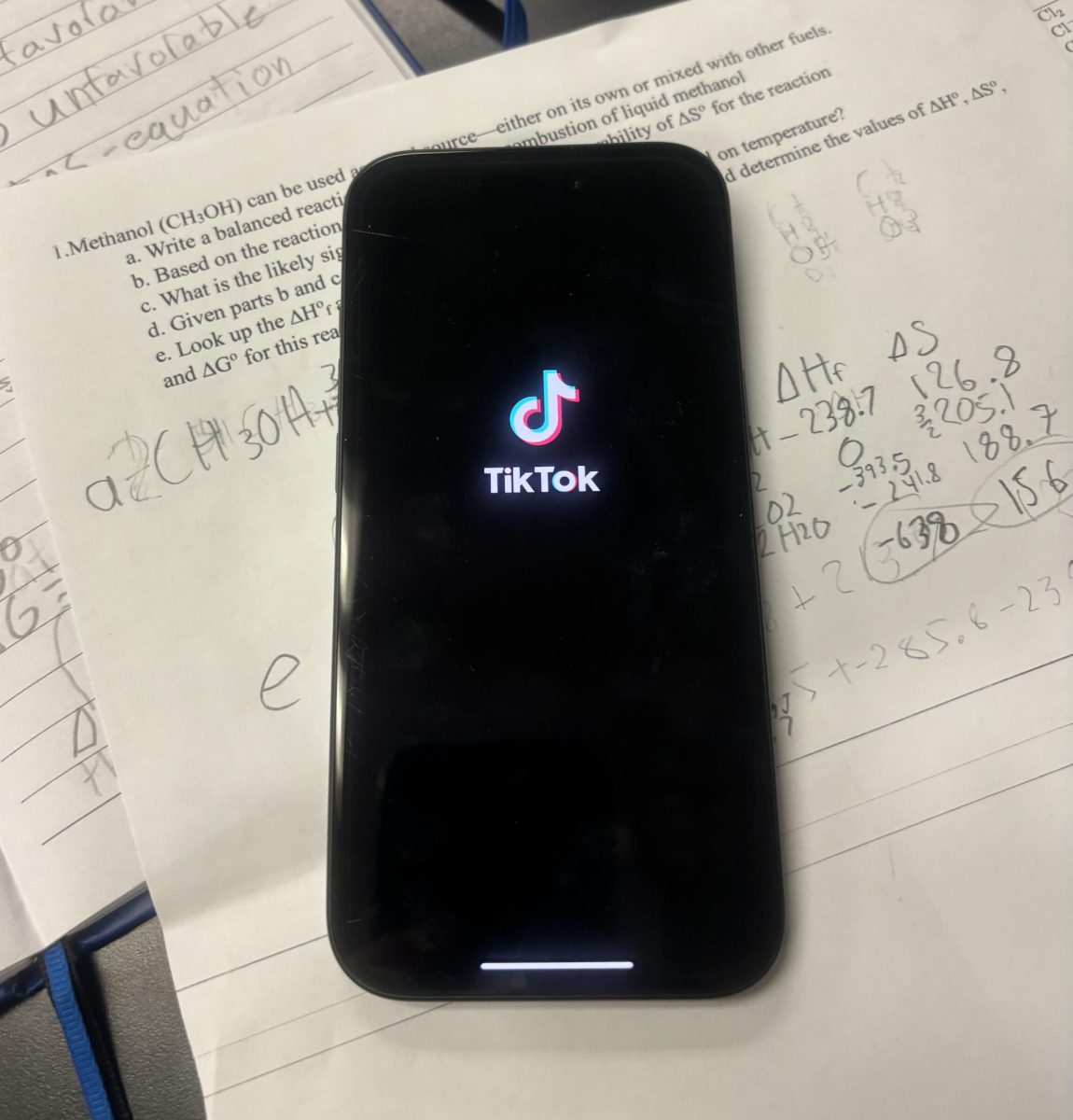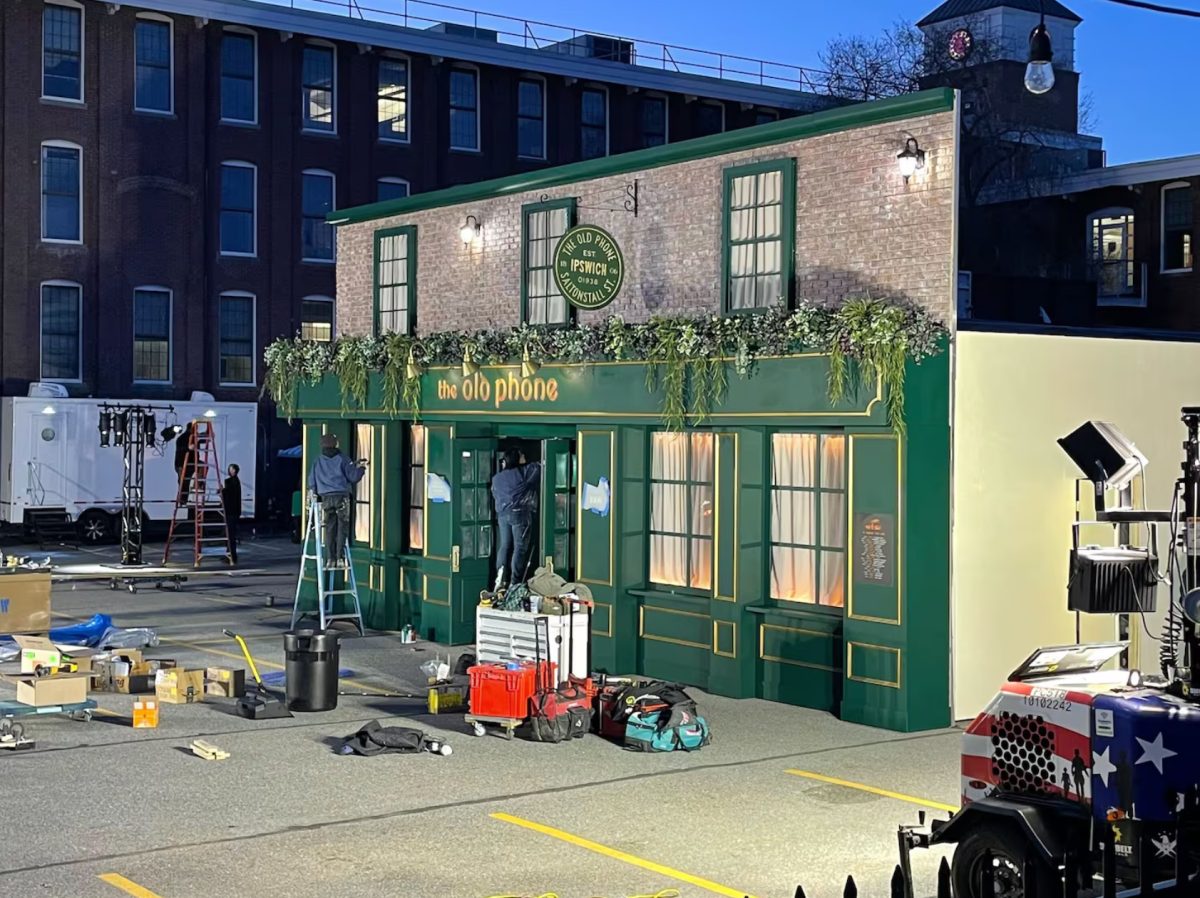As most Triton Highschoolers could relate, the snack line is the highlight of lunch. When buying a small, prepackaged treat, you would expect it to be perfect and fresh. However, when Sophie Stanley, a Junior at Triton, opened her fruit snacks, what she discovered was not at all what she had expected.
Inside the brand new pack of Welch’s Fruit Snacks, Stanley found what seemed to be white fuzz covering and connecting her gummies. This was not the first time she had experienced this. She brought the issue forward to a cafeteria worker, and exchanged the gummies for a new pack. This left Stanley’s lunch table and other students wondering, is this a common experience for students? Are cafeteria staff taking action to prevent this, and if so, what? These were questions that needed answers.
Sonny Rocketenez, a junior at Triton, shared his unexpected experience with a pre-packaged item he had purchased.
“One time I did get a large powdered donut,” said Rocketenez, “and I opened up the package, and I took one bite out of it and it tasted really funky. So, I looked inside and it was actually filled with green mold in the whole inside. So I brought it back to them and traded it in for a bag of chips.”
Students’ food safety is now questioned by some due to finding unexpected substances in their pre-packaged goods. Though what many do not know, is the work and effort behind the scenes to try and prevent this. Sarah Littmann, the director of food and nutrition for all Triton schools was made aware of the concerns happening in the cafeteria. Following the conversation with Littmann and getting input from Steve Cooney, a representative for Welch’s Fruit Snacks, Stacey Brimicombe, operations manager for the Food and Nutrition Department at Triton, and several other lunch staff — information was uncovered not only about the fruit snack incident, but all about how food safety works here at Triton.
Delaney Quinn, a junior at Triton, was sitting at Stanley’s lunch table when she opened her gummies. She herself has never
had any personal issues with food purchased from the school but when seeing the gummies she began to wonder if she should be concerned.
“I thought it was really disgusting,” said Quinn. “Some people wouldn’t [have] even looked at the gummy before putting it in their mouth and would [have] just eaten it.”
After speaking with a portion of the people behind the food that is bought and eaten by students at school it is safe to say that they are taking the steps needed to keep our food safe. The pack of gummies received by Stanley turned out to most likely not be mold but a batch that was made with too much starch. However, it’s hard to tell that due to the fact that the package was thrown out so they were unable to track that specific pack back to when and where it was made. Clooney had instantly sent the picture to his vice president after Littman had reached out, who then forwarded the photo to promotion in motion.
“They had shared with me that they had a problem with one batch with the starch.” Clooney said. “But they can’t tell me without those numbers if the package was from that batch.”
Moving forward students and staff will hopefully be able to attack the problem faster to get to the bottom of it. When pre-packaged food is opened and there is something wrong with it, whether it’s mold or not, it is still a problem and needs to be fixed.
“We have staff training once a month,” Littman said, “I am adding to my training for staff for November that if any time a student brings any kind of food quality concerns to them that it gets reported to management and admin right away so we can follow up as quickly as possible.”
All food staff’s top priority is to keep students healthy, happy and fed. So, when an issue like this occurs students and families can trust that our staff will do everything they can to fix any issue that is brought to their attention.
Stephanie Conland and Kerry Kelaher, two lunch ladies at Triton briefly took reporters from the Triton Voice through the long process of what they go through to prevent issues like this from occurring with both pre-packaged food and food that they make.
“Always check the dates,” Kelaher said.
“And we always date everything,”Conland added.
“Everything gets a certain amount of days that we make ourselves,” Kelaher said.
“Everything that comes in the building we date it right there before we put it away and then we will rotate the product.” Conland concluded.
Knowing that Triton staff is taking all possible precautions, we can assume that the issue occurred before arriving into the building. Obviously staff can not open the packages to make sure the food is still good before selling it so it is up to the warehouses producing these snacks to make sure their food is the best of quality.


